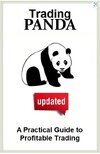- Joined
- 13 February 2006
- Posts
- 5,426
- Reactions
- 12,682
Some further thoughts on this:

This methodology looks at the market as if the trader were playing roulette: that is to say where the possible outcomes were (are) unaffected by what was bet and by how much was bet.
The market is not roulette (statistical) it is like poker, where the outcomes depend on the behaviour of the other market participants, whose behaviour would change in response to their opponents.
This is (the) crucial difference between backtesting historical data looking for statistical relationships with a set mechanical formula and Peter's rolling adaptation to market events happening in the now.
You may argue, but my position size is so immaterial to the market, true: but the mechanical model is predicated on the big money, the flow of capital. When they change because the rules suddenly change overnight, we as small traders get caught in that change. There are all manner of market busts that bear testament to this phenomena.
jog on
duc

This methodology looks at the market as if the trader were playing roulette: that is to say where the possible outcomes were (are) unaffected by what was bet and by how much was bet.
The market is not roulette (statistical) it is like poker, where the outcomes depend on the behaviour of the other market participants, whose behaviour would change in response to their opponents.
This is (the) crucial difference between backtesting historical data looking for statistical relationships with a set mechanical formula and Peter's rolling adaptation to market events happening in the now.
You may argue, but my position size is so immaterial to the market, true: but the mechanical model is predicated on the big money, the flow of capital. When they change because the rules suddenly change overnight, we as small traders get caught in that change. There are all manner of market busts that bear testament to this phenomena.
jog on
duc





